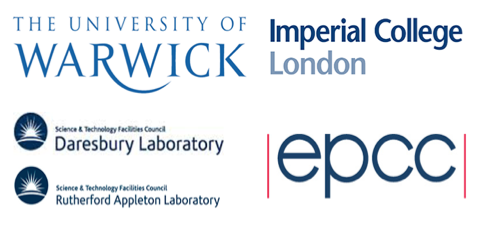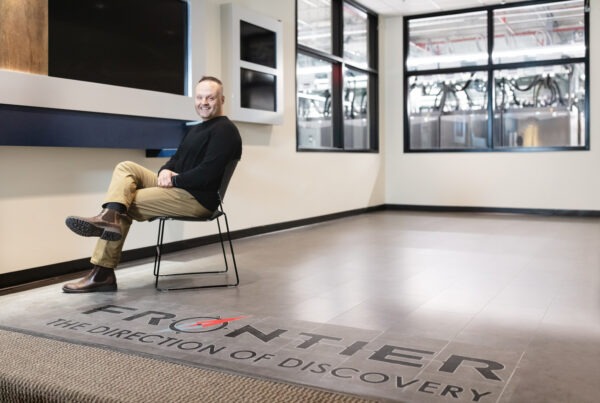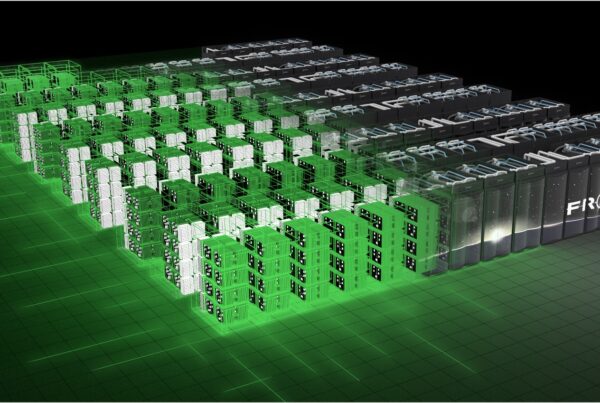
Markus Eisenbach visited Rutherford Appleton Laboratory, Imperial College London, The University of Warwick, the Edinburgh Parallel Computing Centre at the University of Edinburgh, and Daresbury Laboratory during a Leadership Computing Facility lecture tour July 22 to August 1.
OLCF researcher encourages researchers to submit proposals for INCITE program
Oak Ridge and Argonne Leadership Computing Facility (LCF) representatives teamed up this summer to expose scientists in the United Kingdom (UK) to high-performance computing (HPC) research opportunities in the United States. Staff members from the two US Department of Energy (DOE) Office of Science User Facilities were invited to give talks at several UK research institutions July 22 to August 1.
Markus Eisenbach, a computational scientist in the Scientific Computing Group at the Oak Ridge Leadership Computing Facility (OLCF), gave presentations on LCF resources and activities throughout the UK. Accompanying Eisenbach were Nichols Romero and Anouar Benali, staff scientists at Argonne National Laboratory.
During his talk, Eisenbach introduced UK researchers to the OLCF, including its hybrid CPU–GPU supercomputing system, Titan. Audiences heard about Titan’s computing capabilities and architecture, as well as user support provided by the OLCF, located at DOE’s Oak Ridge National Laboratory.
“We try to provide support that goes beyond just fundamental user assistance,” Eisenbach said. “We help users understand how their science problem can be ported to Titan and how to optimize their applications, but we also directly liaise and talk to them as peers.”
Additionally, Eisenbach shared how OLCF resources provide greater opportunities for materials science research and advancement. He presented his own research—effectively porting his linear scaling multiple scattering (LSMS) code to Titan—as an example. The effort led to improvements in performance, power consumption, and science results.
“I pointed out that by effectively using GPUs for LSMS, we got 92 to 96 percent parallel efficiency and a significant reduction in energy-to-solution,” Eisenbach said. “So, not only can you get results faster, but you can pay less for electricity to get the results.”
After sharing these accomplishments, Eisenbach discussed how UK researchers could gain access to US computational resources for their own research through the Innovative and Novel Computational Impact on Theory and Experiment (INCITE) program, jointly managed by the Argonne Leadership Computing Facility (ALCF) and the OLCF.
Open to US- and non-US-based researchers from academia, government, and industry, INCITE awards time on the OLCF and ALCF supercomputers for researchers to pursue grand-challenge investigations and discoveries in science and technology that have the potential for impact at national and global scales.
Romero and Benali gave related presentations on the ALCF, focusing on Mira, the ALCF’s IBM Blue Gene/Q supercomputer. The presentations also provided a glimpse of future OLCF and ALCF systems—Summit and Aurora, respectively. Summit, which is projected to be online in 2018, will expand on Titan’s groundbreaking hybrid architecture, whereas Aurora, which is scheduled to be delivered in 2019, will be based on Intel’s third-generation Xeon Phi processor.
“It was important to inform researchers about the trajectory that DOE is taking toward exascale machines,” Eisenbach said. “We wanted them to be aware that the traditional approach of using CPUs in larger and larger clusters is not going to scale to the exascale.”
The lecture tour was important for connecting and engaging the global HPC community, said Eisenbach, who visited Rutherford Appleton Laboratory, Imperial College London, the University of Warwick, the Edinburgh Parallel Computing Centre at the University of Edinburgh, and Daresbury Laboratory.
“There is this perception that there are different strengths and weaknesses in using high-performance computing in the US and the UK,” he said. “This talk was very useful in seeing what the interests of the English and Scottish research communities are in using HPC, what their software expertise is, and what their expectations are for future use of HPC resources.” – Miki Nolin
Oak Ridge National Laboratory is supported by the US Department of Energy’s Office of Science. The single largest supporter of basic research in the physical sciences in the United States, the Office of Science is working to address some of the most pressing challenges of our time. For more information, please visit science.energy.gov.





